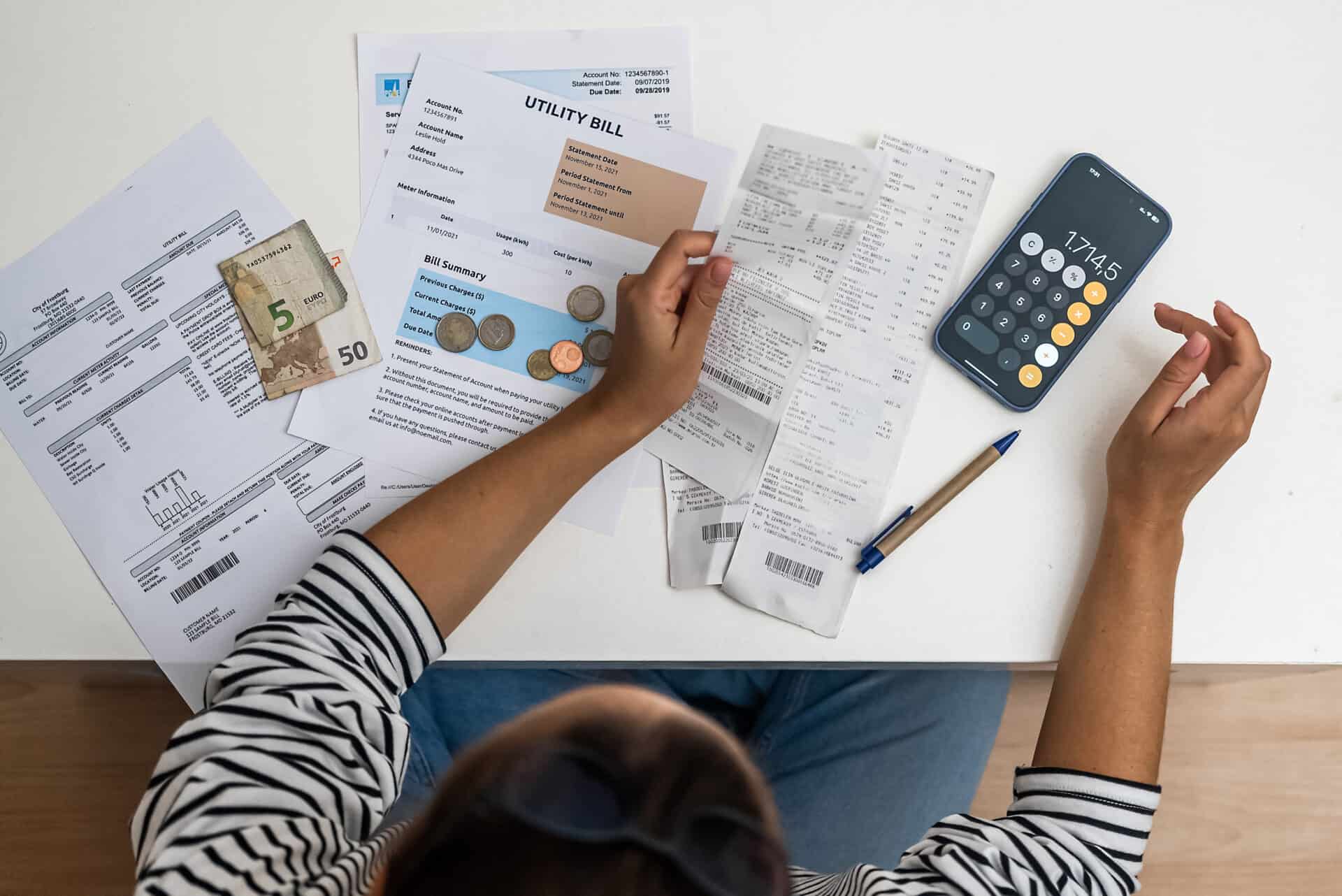Knowing about your investment property tax deductions will undoubtedly boost your tax return and overall rental income.
However, many investors miss out on expense claims because they aren’t equipped with the knowledge presented by the Australian Tax Office (ATO).
Seeing the full potential of all the tax breaks available to you could be the difference between you hoping to earn enough money from your investment property and having positive cash flow.
The following list will arm you with some useful tax tips on the best ways to maximise your investment property tax deductions.
What Rental Property Deductions Can You Claim?
1. Depreciation
Just as it is for vehicles, general wear and tear on your investment property are inevitable. The consequence of the wear and tear will affect the financial value of your property.
This is referred to as depreciation.
Luckily, for property investors, depreciation is a rental property deduction. It’s a non-cash investment property tax deduction where you can claim deductions over time and offset against your income.
Capital Works Depreciation (Division 43)
If your investment property commenced building after 16 September 1987, you could claim an investment property tax deduction on the building depreciation costs.
If you decide to do any renovations on your investment property, the construction cost is also tax-deductible as a rental property deduction. However, unlike the maintenance expenses, the construction costs are not fully deductible in the same year that you pay for it.
You can claim the costs in portions over several years. This is known as a Capital Works deduction. Similar to plant and equipment depreciation, this is a non-cash investment property tax deduction.
You can generally claim 2.5% of the construction cost per year from the time that it was built, for 40 years.
Example:
Layla built a home on her investment property in 2001 for $400,000. She can claim an investment property tax deduction that amounts to $10,000 per year until 2041 as a result of the building’s depreciation.
Plant and Equipment Depreciation (Division 40)
You can similarly claim depreciation for wear and tear on any fixtures and/or fittings in the home.
Fixtures and fittings include things such as carpets, cupboard, aircon, an oven, and showers, for example.
Quantity Surveyor Fees
To maximise the return on your investment, you should possibly seek the advice of a quantity surveyor. They can help prepare a depreciation schedule for your investment property.
The bonus here is that the fees are an investment property tax deduction.
2. Loan Interest
This is the biggest investment property tax deduction you can claim.
If you had to take out a loan from the bank to purchase your investment property, you are entitled to claim any interest charged on the loan as a rental property deduction.
Example 1:
Jane took out a loan of $420,000 to purchase an investment property. She rented out the property for one year, starting in September 2021.
In that same year, she incurred $12,600 in interest on her loan.
The interest that Jane incurred is an investment property tax deduction because the loan was used for income-generating purposes.
If, however, part of the loan was used for private purposes you won’t be able to claim interest on the total size of the loan and instead, you can claim on the apportioned part of the loan used for income generation.
Example 2:
Sam took out a loan of $300,000. He used $285,000 to purchase his investment property and used the remaining $15,000 to pay for his European holiday.
Sam rented out his property for one year from 1 November 2019. In the same year, he incurred a $25,000 interest expense on the loan.
Because part of the loan was used for private purposes, Sam won’t be able to claim the entire interest expense amount as an investment property tax deduction.
He can do the following calculation to work out how much interest will be tax-deductible:
Total interest expense x (investment property loan amount ÷ total loan amount) = tax-deductible interest
$25,000 x ($285,000 ÷ $300,000) = $23,750
3. Rental Expenses
One way to generate income on your investment property is to rent it out. As a landlord, you are liable for all kinds of expenses that can be claimed as rental property deductions each year.
These expenses can be claimed in the same tax year that you paid for them.
Advertising Expenses
Making use of advertising platforms to find tenants for your property is a tax-deductible expense.
Rental Agent Fees
Should you choose to appoint a property agent to manage the property and maintain a good relationship with your tenants, then he/she will be entitled to a fee that usually amounts to between 6% and 8%.
Having a rental agent can be an investment property tax deduction
Legal Expenses
You may wish to seek legal assistance when it comes to preparing the rental documents.
Or you may find yourself in a situation where you will need legal counsel to assist you in obtaining an eviction order. Legal counsel is an investment property tax deduction.
Council Rates
These expenses cover the cost of the rubbish collection and maintenance of the street on which your property is located.
Provided that you are the one paying the council rates, and not the tenant, you can claim this as an investment property tax deduction.
Utilities
If you are the one responsible for paying the water, electricity, and/or gas, you can claim these expenses as an investment property tax deduction.
If, however, you require the tenant to pay for the utilities, you can’t claim it as a rental property deduction.
Property Insurance
To protect your property and its contents, rental insurance is a no-brainer and a tax-deductible expense.
Repairs and Maintenance
Provided that the work done on the property maintains it and does not improve it, you can claim this as an investment property tax deduction.
Example:
Maintenance relates to repairing the wear and tear of the building. So, you may need to hire a professional to replace any broken roof tiles.
But if you decide to replace the carpets with wooden floors in a bid to improve the property and consequently increase its value, you can’t claim it against repair and maintenance costs.
Pest Control
Hiring a pest controller to rid rental properties of pests is an expense incurred whilst ensuring that your investment property continues to generate rental income.
So, you can claim a rental property deduction as an immediate investment property tax deduction on your annual return.
Land Tax
As long as you have rented out the house on your property, you are entitled to claim the land tax as an investment property tax deduction.
*As each state has its own regulations concerning land tax, consult a tax advisor on how to ensure you are submitting the correct claim in the right year.
Tax Advice
Should you decide to make use of a tax advisor to assist you in submitting your land tax claim, these fees are also considered immediately tax-deductible.
Cleaning
If your rental agreement with the tenant includes a weekly cleaning service, for example, this would be an investment property tax deduction.
Similarly, the expense to have the house well cleaned after the tenant vacates the property is tax-deductible.
Gardening Costs
The garden maintenance and replacement of plants and/or garden structures on your investment property is a claimable expense. However, any improvements made to the landscaping that will increase the property’s value will not be claimable under gardening expenses.
Body Corporate Fees
If your investment property is a unit or is a townhouse, you will need to pay body corporate fees. This fee covers building insurance and the maintenance of shared areas.
It is an investment property tax deduction if you (not the tenant) pay it.
Stationery, Phone, and Internet Costs
Renting out your investment property is similar to managing a business.
Any stationery, phone, and internet usage can be claimed as an investment property tax deduction if they relate to the management of your investment property.
Bank Charges
Any bank fees charged on the loan used to purchase the investment property are tax-deductible.
Accountant Costs
The fact that accounting fees are tax-deductible is a good incentive to have an accountant to manage your tax returns and find ways to maximise your tax return.
4. Capital Gains Tax (CGT)
If you sell your investment property within 12 months of owning it, you need to pay capital gains tax on the profit of that sale.
If, however, you own the house for more than 12 months before selling it, you are eligible for a 50% discount on your CGT. This means you will only need to include half of the capital gain in your tax return.
Find out more on capital gains tax and how to reduce it, here.
What can’t you claim on an investment property?
According to the ATO, expenses that aren’t considered to be investment property tax deductions include:
- expenses incurred through the personal use of your investment property;
- the repayments of the principal sum borrowed to purchase the investment property;
- solicitor and conveyancer fees for the purchase or sale of the property;
- other expenses incurred during the purchase or sale of the investment property; and
- stamp duty fees charged on the transfer of property into your name.
- travel expenses to carry out the inspection of your rental property yourself used to be claimable but unfortunately no longer can be claimed.
Key Takeaways
To maximise your tax return, make sure you use the ATO’s comprehensive list of claimable rental property deductions.
By arming yourself with this knowledge, you will be in the best position to take advantage of all the tax return opportunities available through your investment property.
Remember: you can’t claim any of the listed expenses as investment property tax deductions without proof. Make sure you always keep receipts, invoices, and any other documents relating to the expenditure of your income-generating investment property.

Ready to get started?
Talk to one of our friendly property experts to get a free quote or more Information.










